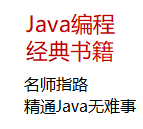简介 项目简介 此项目是实现仿大数据项目流程,包括,日志收集传输,日志格式化,数据实时分析,数据持久化到HDFS,数据离线报表统计,离线任务调度,日志记录搜索几大部分项目数据流 日志数据生成 flume采集日志数据进入kafka log topic kafkastream消费log topic日志,写入process topic 实时模块 flume采集process topic数据,写入hdfs report模块(离线处理模块) azkaban调度任务 ElasticSearch查询历史记录 web页面实时展示活跃用户,和报表页面 项目构成 logbuilder kafkastream sparkstream report 实现 我们按照数据流的方式来写实现1. 日志生成 使用SpringBoot做了一个日志生成器。模拟生成日志,日志格式logger:>>>> requestid,userid,ts,城市,经度,维度,操作(0浏览 1购买)
public static void main(String[] args) {new HashMap<Integer, String[]>();// 存储城市,经纬度 map.put(0,new String[]{"海门","121.15","31.89"});new String[]{"盐城","120.13","33.38"});new String[]{"上海","121.48","31.22"});new String[]{"厦门","118.1","24.46"});new Random();while (true ){int i1 = random.nextInt(map.size());try {catch (InterruptedException e) {long ts = System.currentTimeMillis();int userid = random.nextInt(100000);// requestid,userid, 城市,经度,纬度,操作(浏览,购买)0 浏览 1 购买 logger.info("logger:>>>>{},{},{},{},{},{},{}",requestid, ts, userid, o[0],o[1],o[2],random.nextInt(2));
#!/bin/bashwhile :do
2. 日志采集 日志采集使用Flume,将日志文件数据采集到Kafka中,3. KafkaStream进行数据清洗 这一步主要是对日志数据进行清洗,过滤掉不符合规范的日志,requestid,userid,ts,城市,经度,维度,操作(0浏览 1购买)
public static void main(String[] args) {new Properties();// 设置application id properties.setProperty(StreamsConfig.APPLICATION_ID_CONFIG,"stream-tmall");// 设置kafka地址 properties.setProperty(StreamsConfig.BOOTSTRAP_SERVERS_CONFIG,"192.168.33.3:9092,192.168.33.4:9092,192.168.33.5:9092");// 创建拓扑结构 Topology topology = new Topology();// 构建数据来源,数据处理逻辑,数据去向 topology.addSource("SOURCE",from)new LogProcesser(), "SOURCE")//过时 // TopologyBuilder builder = new TopologyBuilder(); // builder.addSource("SOURCE",from) // .addProcessor("PROCESS", ()->new LogProcesser(), "SOURCE") // .addSink("SINK",to); // // // // 创建kafkastream KafkaStreams streams = new KafkaStreams(topology,properties);// 开启流处理 streams.start();
public class LogProcesser implements Processor<byte[],byte[]> {private ProcessorContext context;public void init(ProcessorContext context) {public void process(byte[] key, byte[] value) {// 核心流程,处理日志 String line = new String(value);if (line.contains("logger:>>>>")){// 转发 context.forward("LogProcess".getBytes(), split[1].trim().getBytes());public void punctuate(long timestamp) {public void close() {
4. SparkStreaming数据实时处理 我们实时部分,是消费Kafka中process topic中的数据,每一条数据都是今天用户的操作,所以我们将每一条日志的城市取出来,放到realtime topic中,等待后序消费,把数据推送到前端进行实时展示(这部分没做,页面不好写)public class SparkStreamingProcesser {private static final String brokers = "192.168.33.3:9092,192.168.33.4:9092,192.168.33.5:9092";private static final String group_id = "tmall_online";private static final List<String> topic = new ArrayList<String>(Arrays.asList("process"));private static final String toTopic = "realtime";public static void main(String[] args) {//1. 得到spark上下文 SparkConf conf = new SparkConf().setAppName("tmall_online").setMaster("local[*]");//2. 创建sparkstreamingcontext。每隔2钟会处理一次收集到的数据 JavaStreamingContext jssc = new JavaStreamingContext(conf, Durations.seconds(10));//3. 创建kafka的参数 HashMap<String, Object> kafkaParams = new HashMap<String, Object>();// 设置kafka集群地址 kafkaParams.put(ConsumerConfig.BOOTSTRAP_SERVERS_CONFIG, brokers);// 设置消费者组 kafkaParams.put(ConsumerConfig.GROUP_ID_CONFIG, group_id);// 设置key反序列化类 kafkaParams.put(ConsumerConfig.VALUE_DESERIALIZER_CLASS_CONFIG, StringDeserializer.class);// 4. 通过参数创建一个kafka stream JavaInputDStream<ConsumerRecord<Object, Object>> stream = KafkaUtils.createDirectStream(// 5.获取数据并处理 JavaDStream<String> map = stream.map(msg-> msg.value().toString());new KafkaProducerUtils();return "a";try {catch (InterruptedException e) {finally {
5. 日志持久化 我们需要将用户操作日志持久化到HDFS中,我们将格式化之后的数据采集到HDFS,所以我们使用Flume将Kafka中process topic的数据采集到HDFS6. 报表项目 当每天数据采集到HDFS之后,我们需要T+1处理这些日志,产生报表,我们这里主要产生两个指标各省活跃用户 各省销售量 总结 项目现在就是做到现在这样,后面还有Azkaban任务调度,Flume将数据采集到ElasticSearch中,用于试试查询,还有web显示页面。Flume将数据采集到HDFS的时候产生了大量的小文件,后面调整了配置参数 https://gitee.com/zhangqiye/tmall https://www.jianshu.com/p/8fc127944e4a www.javathinker.net
网站系统异常
系统异常信息
Request URL:
http://www.javathinker.net/WEB-INF/lybbs/jsp/topic.jsp?postID=1157本站管理人员 。













